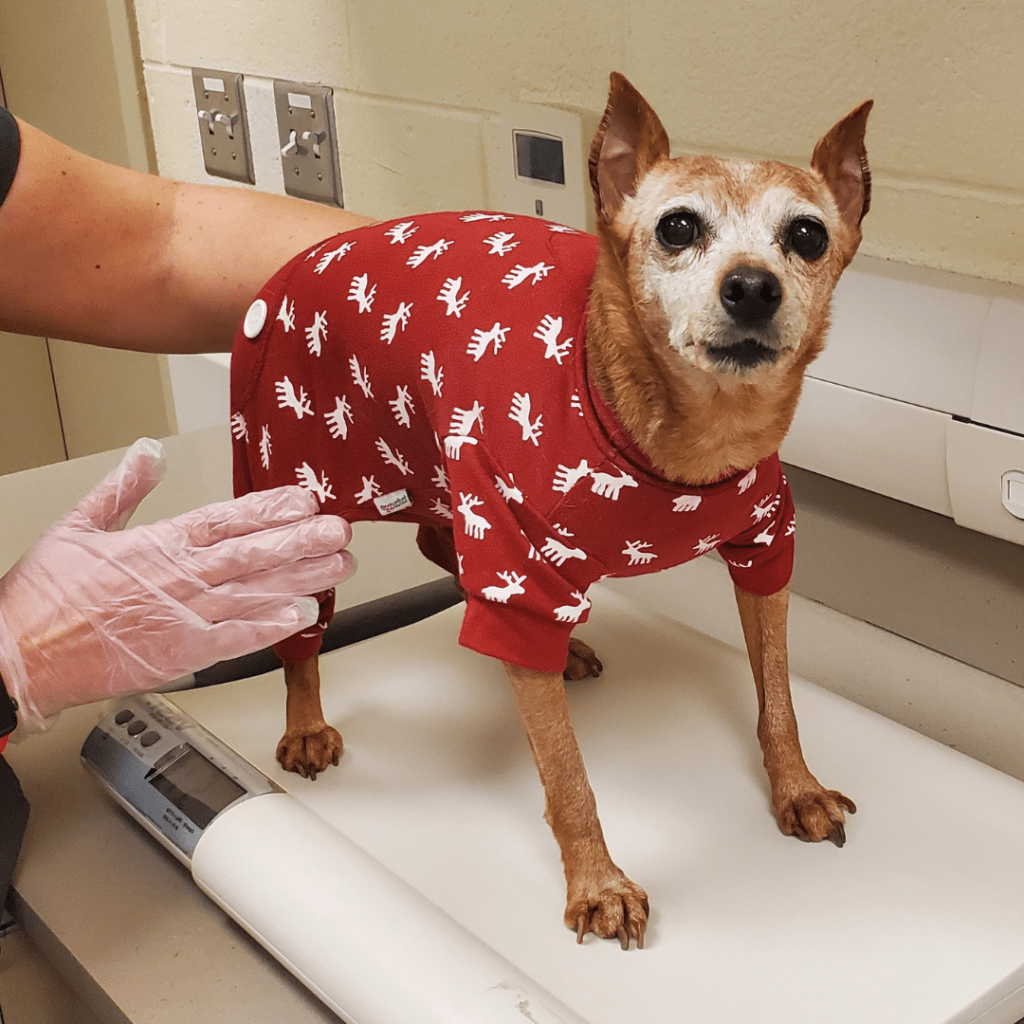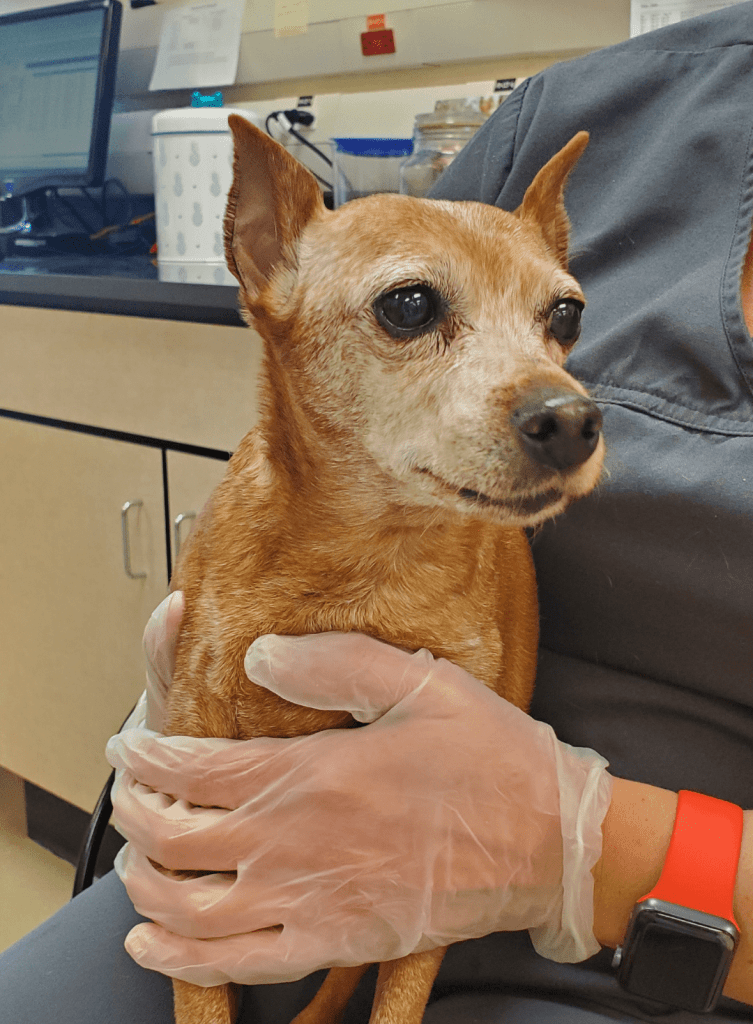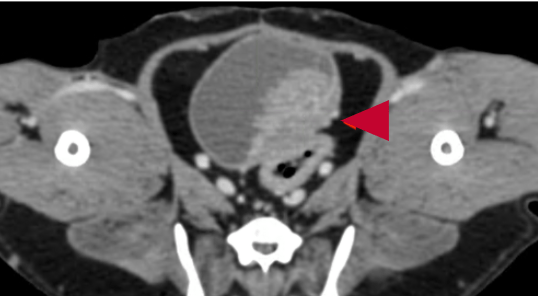
Jasmin – Transitional Cell Carcinoma
Study Investigators: Dr. Brenda Coomber and Dr. Paul Woods
Study Title: Collection of Biological Specimens from Dogs Scheduled for Biopsy or Surgery for Suspected or Known Cancer
Generously Supported by: PetDx
Jasmin was diagnosed with transitional cell carcinoma (TCC) (a tumour within the wall of her bladder) with no evidence of metastasis.
This type of cancer accounts for approximately 2% of reported cancers in veterinary medicine. It is the most common type of cancer found in the bladder. TCC is locally aggressive and has a moderate rate of metastases (lymph nodes, lungs, liver, spleen, skin or brain).
Common clinical signs of TCC include stranguria (straining to urinate), hematuria (blood in the urine), polyuria and polydipsia (increased urination and drinking) or persistent urinary tract infections.

This is a CT image of Jasmin’s abdomen. It is a transverse view; meaning this image is perpendicular to her body. Here we can see Jasmin’s pelvis and hind legs (she is laying on her back in the scanner).
Her tumour is indicated by the arrow.

Jasmin’s treatment with the OVC Oncology and Surgery service included a partial cystectomy (removal of the tumour), lymphadenectomy (removal of the draining lymph nodes) and intravenous chemotherapy with Mitoxantrone.
At her standard of care appointments, blood has also been collected for participation in PetDx observational study.

A message from Jasmin’s mom “We are so thankful for all of the animals and pet parents that came before making it possible for Jasmin to have a fighting chance! We are also thrilled to be part of a study that can help other pets in the future!”
TCC is considered to be a comparative disease, by learning more about the disease process, our teams at OVC are able to contribute to research that can help humans too!


